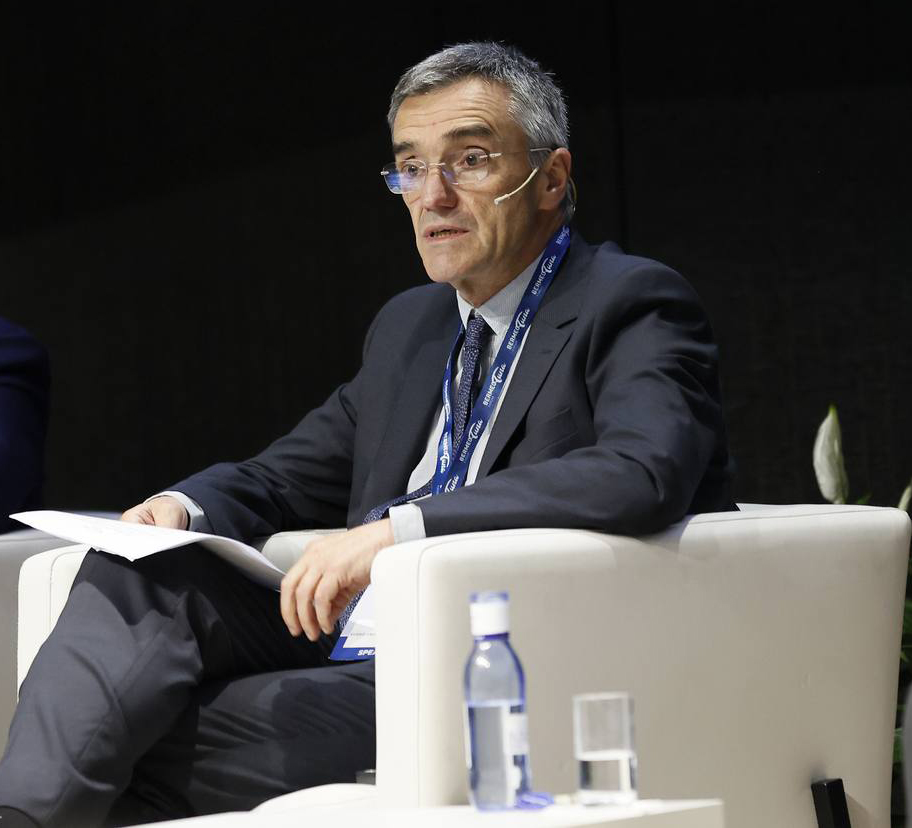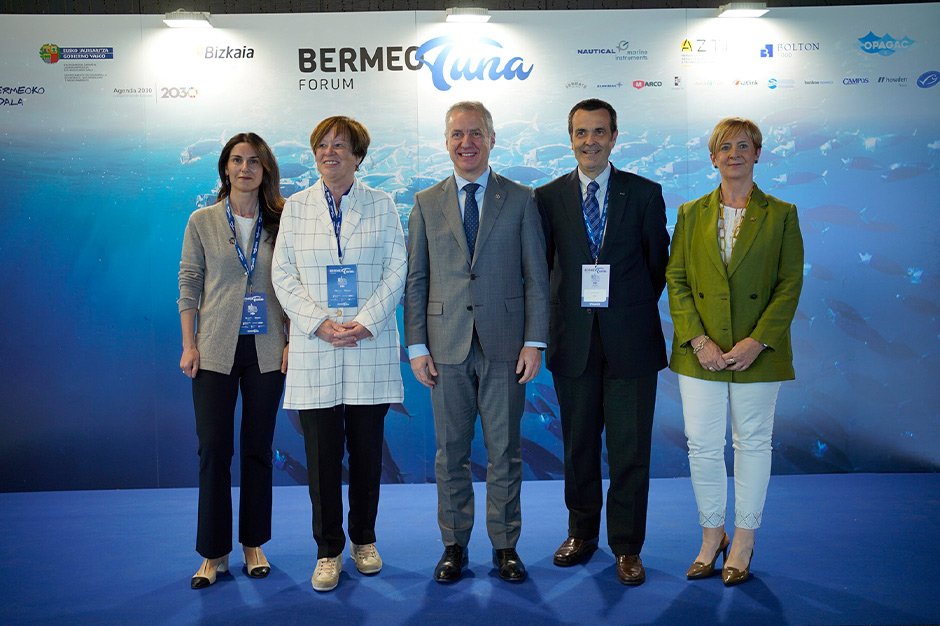Bermeo Tuna Forum is leading the way towards sustainable management of tuna fishing
The president of the Committee on World Food Security, Gabriel Ferrero, gave the opening conference. Helena Orella, BTF director, presented the International Tuna Sustainability Declaration proposal
The Euskalduna Conference Centre in Bilbao hosted the first Bermeo Tuna Forum (BTF) event, an international meeting that brought together institutions, scientific organisations and representatives from the fishing industry to commit to tuna sustainability, as a food that represents 25% of the wild-type protein eaten throughout the world. The forum was opened by Ignacio Serrats, president of Bermeo Tuna World Capital (BTWC), the public-private association which organised the event. “Today Bermeo is leading the way towards sustainability for tuna resources with the entire value chain, fundamentally backed by science. Everything is possible, we have good strategies, but the result will depend on whether we are capable of working well and using our efforts, good intentions, commitment and determination to defend this sector.
In turn, Bittor Oroz, deputy minister for Agriculture, Fishing and Food Policy at the Basque Government, reminded all attendees about the importance of the tuna fishing sector, that “provides 1,700 direct jobs in the Basque Country and around 3,000 indirect jobs, with an annual turnover of 1,550 million euro.”
Idoia Platas, deputy mayor of Bermeo, rounded off this initial welcome by highlighting that holding the BTF “has been a challenge, although it also represents an opportunity from the point of view of Bermeo’s positioning and internationalisation.”
The opening presentation was given by Gabriel Ferrero, the president of the Committee on World Food Security. After recapping the key aspects of fishing’s sustainable transformation and praising the work of the BTWC, the Declaration and the Global Tuna Cities Sustainability Alliance, he spoke of his personal commitment “from this very day, to disseminate this experience because I am convinced that what is being done in the Basque Country is what is required in other parts of the world. Its experience can pave the way for similar transformation processes.”
Following Gabriel Ferrero, there was the first of the five panel sessions organised to address the challenges involved in tuna sustainability from different points of view. In the first, MEP Izaskun Bilbao warned of an increasingly aggressive narrative in Europe that “disparages our work, completely aside from what we are doing which is coming from countries that do not meet the sustainability criteria.” Furthermore, she added that the fight against illegal fishing is backed by a sector that recognises it on a daily basis with actions, investments and values but that needs member states to work together coherently.
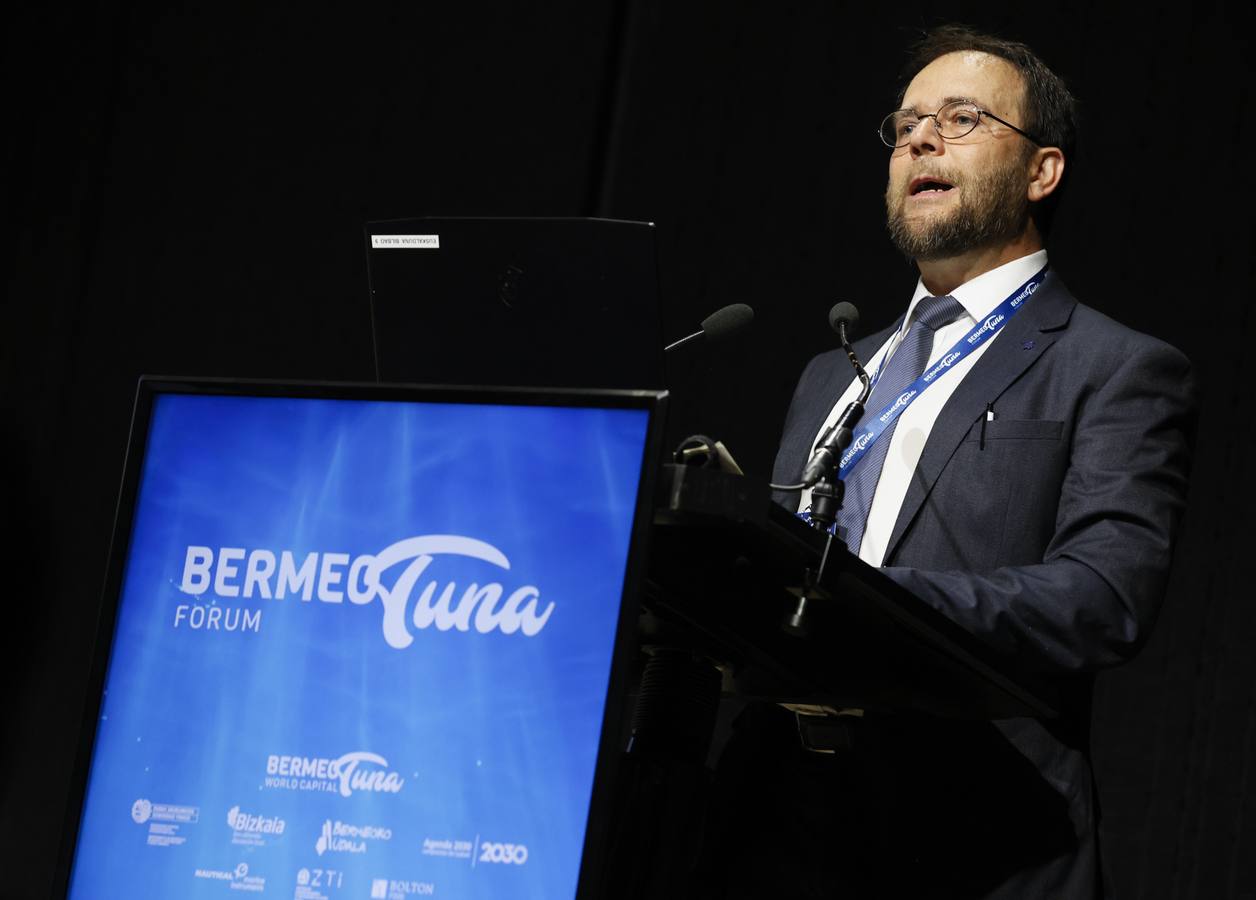
«I am convinced that what is being done in the Basque Country is what is required in other parts of the world»
On this panel, experts from several institutions addressed the role of international governance in the sector’s sustainable development. Kim Sotobberup, head of the FAO’s Common Oceans Tuna Project, emphasised the International Tuna Sustainability Declaration, as an important milestone because it aligns with the FAO governance and SDG 14. First up from the Basque Government was Leandro Azkue, director of Fishing and Agriculture, who explained the scientific support that they provide, via the Azti technology centre, to companies so that they can get better use out of fishing resources. Subsequently, Jonan Fernández, secretary general for Social Transition and the 2030 Agenda, highlighted that the collaboration process begun by Bermeo Tuna World Capital represents the SDG application model that the Basque Government wishes to be applied in all business sectors.
Fifteen commitments in three ways
The major landmark in this forum, which will continue tomorrow in Bermeo, was the presentation of the International Tuna Sustainability Declaration proposal by the director of BTF, Helena Orella. In line with the UN 2030 Agenda and its 17 Sustainable Development Goals, the document lists 15 commitments which address sustainability in three ways: offering real options for responsible purchasing; requiring regulation and effective control in fishing operation and management to avoid illegal practices; and setting the obligation for sound traceability systems.
Other objectives in the proposal drawn up by BTWC include parties working together to improve the information, research and technological innovation in maritime-fishing matters, defending decent work and gender equality or supporting traditional fishing communities. “In short, these are commitments to protect and preserve sea-life, its resources and all the people and communities that form part of this complex and extensive supply chain,” summarised the director of BTF.
From the stage, Helena Orella urged “active and responsible participation from the tuna sector, in alliance with the scientific community, the technological field and expert NGOs to come up with joint solutions” that help achieve the goals set out in a document that aspires to international recognition. “Hopefully, we will be able to make the most of the huge opportunities provided by this shared work to spread this dream across all oceans and to every corner of the planet,” she concluded.
Orella symbolically handed the International Tuna Sustainability Declaration proposal to the Basque President, Iñigo Urkullu, who closed the morning session of this forum. After emphasising the “Basque Country’s commitment to the 2030 Agenda because we share the same goals” and reminding us that “the sea has forged our very being and remains part of our essential economic activity,” he added that “we wish to remain a benchmark in the world of fishing and lay the foundations to keep doing this while protecting the environment.”
Urkullu emphasised the role of the BTWC as an “example of the public-private collaboration that we know so well in the Basque Country” and after highlighting that “today we are laying out an international commitment, with the same rules for everyone”, he asked the United Nations to “take up this Declaration that we have created in Bermeo and circulate it far and wide.”
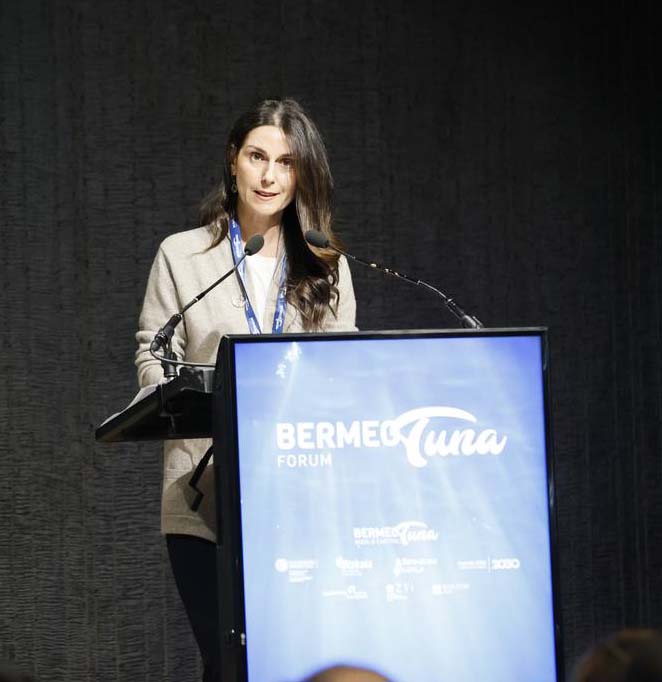
Helena Orella
Bermeo Tuna Forum director
«These are commitments to protect and preserve sea-life, its resources and all the people and communities that form part of this complex and extensive supply chain»

Iñigo Urkullu
Basque President
«We wish to remain a benchmark in the world of fishing and lay the foundations to keep doing this while protecting the environment»
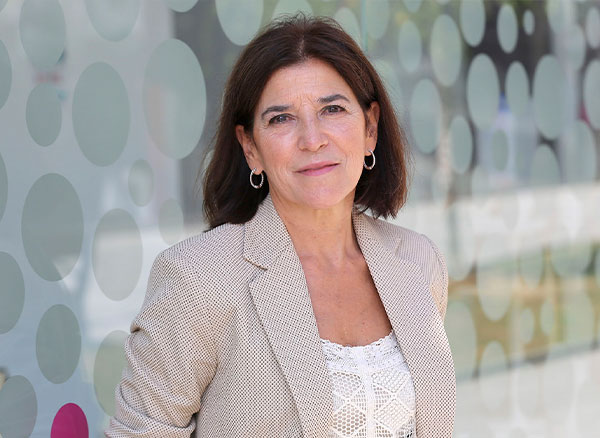
Izaskun Bilbao
European Parliament Member
«the fight against illegal fishing is backed by a sector that recognises it on a daily basis with actions, investments and values»
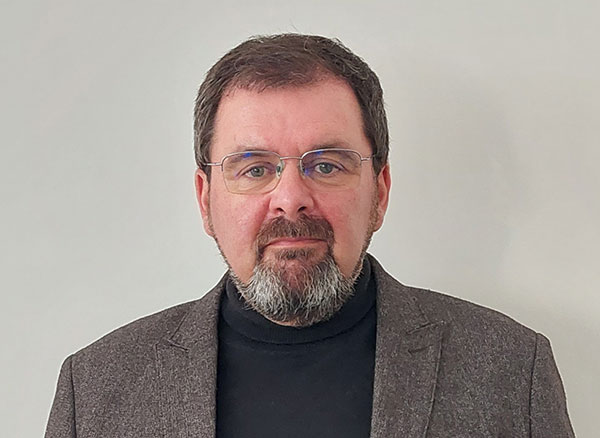
Kim Stobberup
FAO’s Common Oceans Tuna Project Head
«The International Tuna Sustainability Declaration is an important milestone because it aligns with the FAO governance and SDG 14»
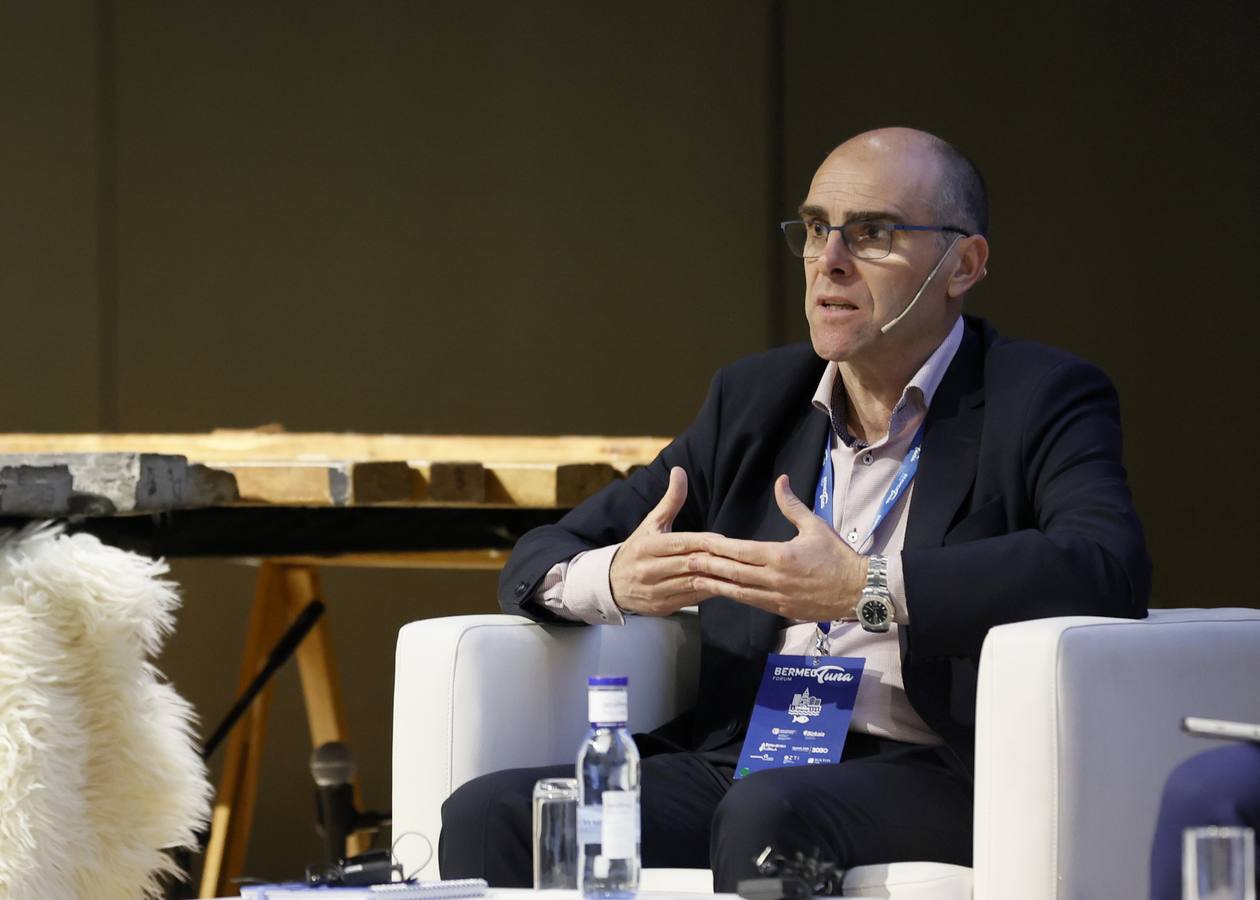
Leandro Azkue
Director of Basque Government's Fishing and Agriculture
«European Union must support the market being extremely demanding with the imports of countries whose social and laboral conditions are not acceptables»
